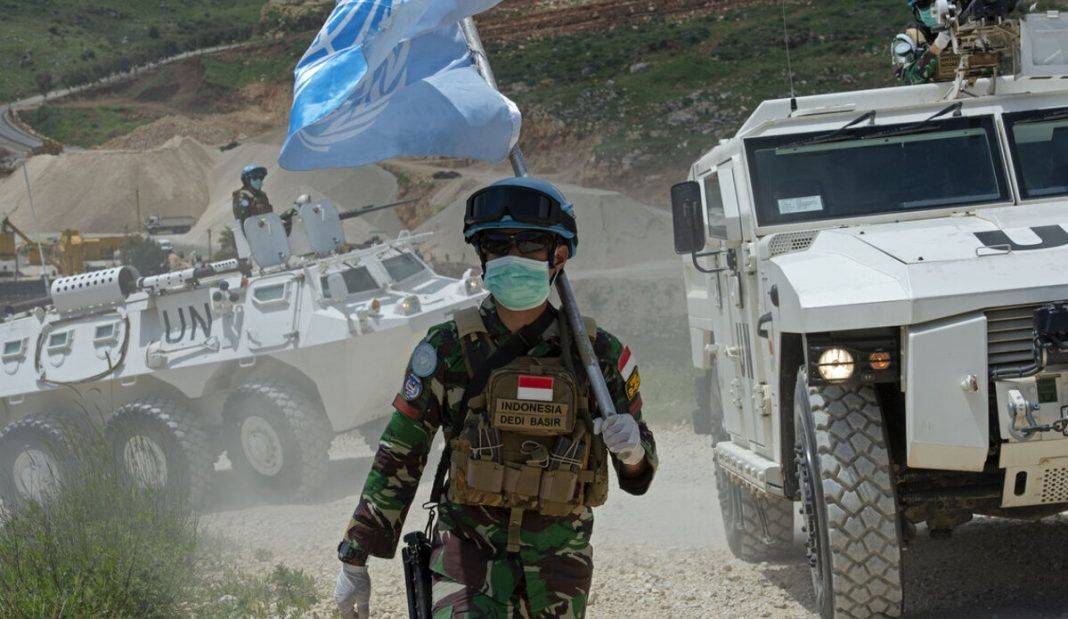written by: Marina Ika Sari
(Researcher, ASEAN Studies Program, The Habibie Center)
In the time of the COVID-19 pandemic that is spreading globally and hitting various socio-economic activities, there is one thing that has not halted because of COVID-19, namely the task of building peace for United Nations Peacekeepers. The UN has issued a regulation that peacekeeping missions should continue in mission areas by implementing strict health protocols to maintain the security and safety of peacekeepers and prevent the spread of the coronavirus. Despite the COVID-19 pandemic situation, peacekeepers are still carrying out their duties to build peace in the country they are posted in, including Indonesian peacekeepers.
Indonesian peacekeepers have made several achievements and successes in conducting the UN mandate amidst the COVID-19 era. One thing that stands out is in the context of preventing conflict among countries, where Indonesian peacekeepers succeeded in preventing armed conflict between Israeli and Lebanese troops on the Blue Line, on the border of both countries.
In addition, Indonesian peacekeepers also actively play a role in carrying out the mandate of Protection of Civilian and Civil Military Coordination (CIMIC). In the context of Protection of Civilian, the Garuda Contingent – the designation of Indonesian peacekeepers – succeeded in embracing and ensuring the militias surrender, releasing of American hostages from the hands of bandit groups, as well as evacuating Congolese civilians who were victims of ambushes of armed bandits in the Democratic Republic of Congo.
Meanwhile, through CIMIC activities, Indonesian peacekeepers provide direct benefits to local communities, such as providing humanitarian assistance for those affected by the COVID-19 pandemic in the form of medicines and personal protective equipment (PPE) in Lebanon, assisting to prepare land for a COVID-19 handling center in the Central African Republic, providing free health services and field psychology, building a mini library, and socializing prevention measures of COVID-19 to local people in Congo.
It could be seen that the role of peacekeepers has evolved from time to time. Peacekeepers are not only tasked to prevent inter-state conflicts, but at this time also to handle intra-state conflicts such as civil war, threats from armed groups, terrorism and radicalism, as well as infectious diseases. So, the challenges faced nowadays are more on the asymmetrical conflicts.
According to the UN data, Indonesia is the 8th largest contributor country in the world with the number of peacekeepers reaching 2,837 as of August 2020, which spread across 8 mission areas, such as Western Sahara, Central African Republic, Mali, Democratic Republic of the Congo, Darfur, Lebanon, Abyei, and South Sudan. The Indonesian peacekeepers consist of 2,680 male personnel and 157 female personnel who include military personnel, police, staff officer, and UN Military Experts on Mission (UNMEM).
With the proportion of female personnel at only about 5 percent of the total Indonesian peacekeepers, Indonesia continues to encourage the involvement of women peacekeepers in the UN peacekeeping operation. This is because women peacekeepers also have a crucial role in building peace in the mission areas, especially in the post-conflict reconstruction.
Indonesian Foreign Minister, Retno Marsudi stated that the performance of Indonesian women peacekeepers in several countries garnered appreciation from the local community. For instance, Indonesian women peacekeepers play roles in helping physical recovery and post-conflict trauma for war victims who mostly are women and children, addressing the special needs of women ex-combatants during the demobilization and reintegration process into civilian life, and empowering women in the host community. Thus, women peacekeepers have a unique approach and access that men peacekeepers do not have in building communication and negotiations in conflict areas.
Then, regarding the deployment of peacekeepers during the COVID-19 pandemic, the UN has temporarily suspended all rotations, new deployments to mission areas, and repatriations. However, in September 2020, Indonesia began deploying around 200 new peacekeepers from the Indonesian Armed Forces (TNI) to the Central African Republic and a further 280 Formed Police Units (FPU) were also sent to Darfur, Sudan and Bangui, Central African Republic.
As such, the existence of the COVID-19 pandemic does not halt the efforts of Indonesian peacekeeping to carry out their duties in building peace in mission areas. With limited conditions in the field and health protocols implementation, they are still not letting down their guard. The important thing is to provide security, safety and health protection for Indonesian peacekeepers not to be infected with the coronavirus while on duty. As the COVID-19 pandemic forces all of us to adapt to the new situation, so too must Indonesian peacekeepers.



